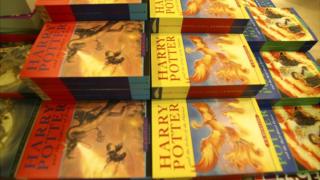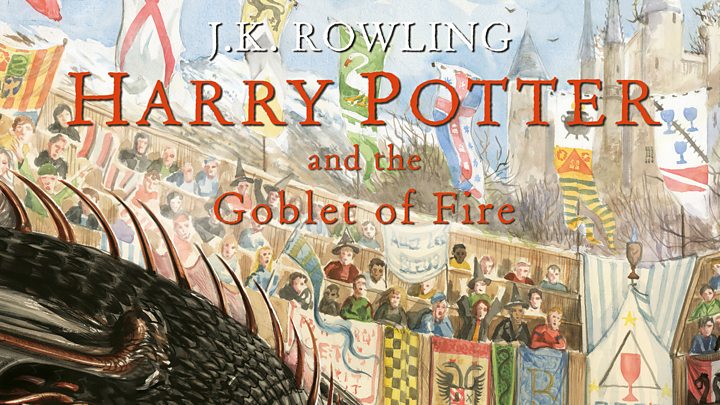
Image copyright
PA Media
Bloomsbury Publishing has become an unexpected victim of the ongoing trade war between the US and China.
Nigel Newton, chief executive of the firm, which publishes Harry Potter among other titles, said books printed in China for the USA became 15% more expensive overnight on 1 September.
This was as a result of tariffs being imposed by the countries on each other.
“It is not a cost we anticipated, and it’s one we hope to take in our stride,” he told the BBC.
The company expects the tariffs to have only a small impact on the current financial year, and says it has various ways to mitigate the impact in the future.

Media playback is unsupported on your device
The tariffs have previously been imposed on items such as cars, food and footwear, but many people had not realised books would be targeted as well.
Separately, Mr Newton said that some of Bloomsbury’s illustrated books are printed in China, “because the quality is so good and the pricing is so good”.
‘Second-half weighted’
Mr Newton was speaking after the firm said it expected its full-year performance to be in line with expectations.
In the six months to the end of August, the publisher reported a 5% drop in sales to £71.3m with pre-tax profits falling by nearly 19% to £1.3m.
However, the firm said it was confident about future sales.
Mr Newton told the BBC: “The publishing year is traditionally second-half weighted with back-to-university in October, and the big Christmas gifting season in the second half – so it’s very much a game of two halves.”
This month, Bloomsbury has published titles including the illustrated version of Harry Potter and the Goblet of Fire.
In its results statement, the company said: “With our strong consumer list in the second half, our sales are therefore expected to be even more second-half weighted than in previous years.”
In recent years, there were fears that the publishing industry would be harmed by the introduction of electronic books and other new technology.
But Mr Newton said: “Publishing has been a winner in the digital revolution for several reasons.
“Whether someone buys an e-book or a print book doesn’t matter to us – they’re still buying a book from us.
“Secondly e-books have made books available to people 24 hours a day, seven days a week, in every country in the world.
“And thirdly the internet itself has created such a huge range of new ways to reach readers through social media and directly targeted email shots.
“For digital resources, which is one of the really exciting growth areas of Bloomsbury, during this period sales were up 73%.”
Nigel Newton’s interview is available on World Business Report at 1530GMT on BBC World Service.
Source link
